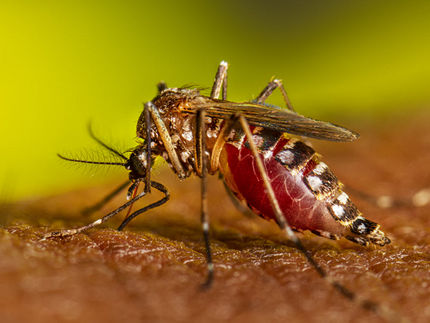€ 1 Million Research Grant Awarded for the First Time
Merck awarded a grant known as the Future Insight Prize for the first time
Merck awarded a grant known as the Future Insight Prize for the first time. Pardis Sabeti, Harvard University and the Broad Institute of MIT and Harvard, Cambridge, Massachusetts, USA, and James Crowe, Vanderbilt University Medical Center, Nashville, Tennessee, USA, were recognized for their scientific work which could lay the foundation for later realization of the visionary dream product “pandemic Protector”. A € 1 million research grant will be divided equally between the Vanderbilt University Medical Center and the Broad Institute to further their innovative research.

Stefan Oschmann, Chairman of the Executive Board and CEO of Merck together with the awardees of the Future Insight Prize 2019: Pardis Sabeti from the Broad Institute of MIT and Harvard (Cambridge, Massachusetts, USA) and James Crowe from the Vanderbilt University Medical Center (Nashville, Tennessee, USA).
Merck KGaA
“With the Future Insight Prize, we want to recognize outstanding scientists who are making meaningful contributions to fields that are critical to the future of humanity such as pandemic preparedness,” said Stefan Oschmann, Chairman of the Executive Board and CEO of Merck. “Pardis Sabeti and James Crowe are excellent examples of this. Their work underlines that science can be a force for good and make a substantial and lasting contribution to human progress.”
The Future Insight Prize puts forth a vision for ambitious dream products and is intended to trigger curiosity and creativity worldwide on how to make this vision a reality. Merck aims to award a research grant of up to € 1 million annually for the next 35 years to incentivize work which will enable significant progress towards making this vision a reality by discovering new groundbreaking science or by developing enabling technologies. Merck is sponsoring the Future Insight Prize to realize dreams for a better tomorrow in the areas of health, nutrition and energy. Sabeti and Crowe were recognized with the first Future Insight Prize for their leading-edge innovation and ability to find solutions to persisting problems in these areas.
Pardis Sabeti is a Professor of Systems Biology at Harvard University and the Harvard T.H. Chan School of Public Health. She is a Howard Hughes Medical Investigator and is an Institute Member of the Broad Institute of MIT and Harvard, both located in Cambridge, Massachusetts, USA. Sabeti works on identification of new innovative genetic technologies for detection and therapy with potential broad applicability for emerging viruses.
“Our collaborative philosophy has allowed us to partner with researchers, clinicians and healthcare workers around the world to not only create practical solutions, but also test their success at the front lines of infectious disease outbreaks,” Sabeti said. “With the support of Merck, we can harness the power of sequence-based therapeutics and pioneer novel technologies that have the potential to target and treat all pathogens — enabling our vision of a pandemic protector that can keep the world safe from future pandemics.”
James Crowe, Vanderbilt Vaccine Center at Vanderbilt University Medical Center, conducts research in the area of viral immunology and antibody sciences with the aim of discovering mechanisms important to develop new therapeutics and vaccines. Crowe’s research includes work on human monoclonal antibodies to viruses such as Ebola, dengue, Zika, and Marburg.
“I am thrilled to see the commitment of Merck to this Future Insight Prize and the topic of emerging infectious agents,” Crowe said. “I have committed my scientific research career and the efforts of my large and talented team to this area because I believe so deeply in the urgency of the matter. We are in an ideal position to capitalize on our current momentum for development of solutions for emerging infections and obtaining support for our technological development and basic research in this area will greatly accelerate our work.”
In 2020, Merck will award the next Future Insight Prize in the dream product category “Multidrug Resistance” during the Curious Future Insight Conference (July 13 - 15, 2020, Darmstadt). The dream product is a series of novel narrow-spectrum antibacterial agents capable of curing any bacterial infection without inducing drug resistance, empowered by a one-hour diagnostic test.
Other news from the department science
Most read news
More news from our other portals
See the theme worlds for related content
Topic world Antibodies
Antibodies are specialized molecules of our immune system that can specifically recognize and neutralize pathogens or foreign substances. Antibody research in biotech and pharma has recognized this natural defense potential and is working intensively to make it therapeutically useful. From monoclonal antibodies used against cancer or autoimmune diseases to antibody-drug conjugates that specifically transport drugs to disease cells - the possibilities are enormous

Topic world Antibodies
Antibodies are specialized molecules of our immune system that can specifically recognize and neutralize pathogens or foreign substances. Antibody research in biotech and pharma has recognized this natural defense potential and is working intensively to make it therapeutically useful. From monoclonal antibodies used against cancer or autoimmune diseases to antibody-drug conjugates that specifically transport drugs to disease cells - the possibilities are enormous























































